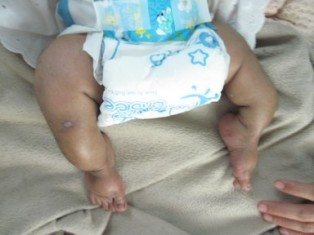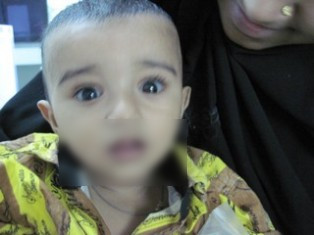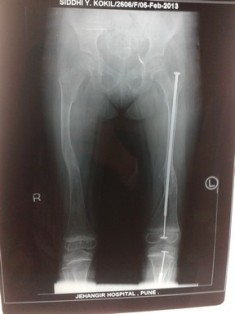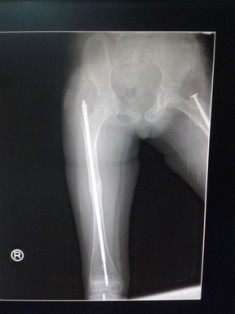Osetogenesis Imperfect
It is also called as brittle bone disease. The child will have recurrent fractures of different bones even with trivial trauma. There are many types ranging from mild to very severe. The child may have blue sclera. It can be seen in many members of the family. This condition can be diagnosed on Bone Mineral Density (BMD) studies and genetic studies.
Treatment
Medical management: Bisphosphonates are beneficial and they decrease the risk of fractures. They are administered by intravenous route and are given under medical supervision.
Surgical management: Children will have deformity of long bones because of bending and repeated fractures. Surgical correction of deformity and intramedullary rodding techniques can be used to correct the deformities and prevent refractures. Newer elongating rods are available which decreases the need for repeated surgery. After 18 years the risk of fractures decreases.
Surgical management: Children will have deformity of long bones because of bending and repeated fractures. Surgical correction of deformity and intramedullary rodding techniques can be used to correct the deformities and prevent refractures. Newer elongating rods are available which decreases the need for repeated surgery. After 18 years the risk of fractures decreases.





